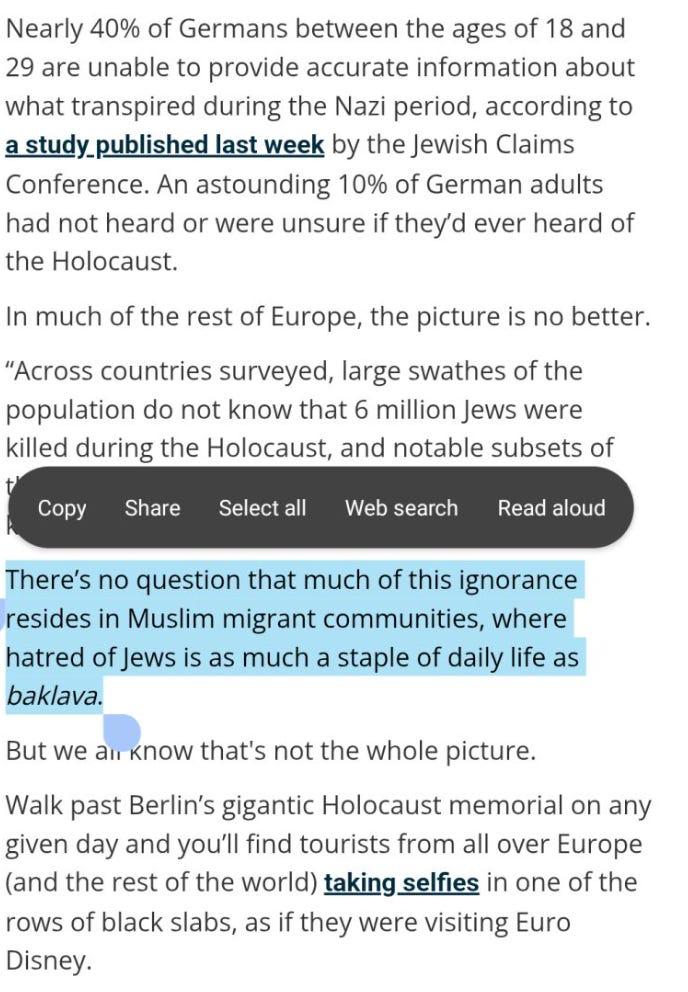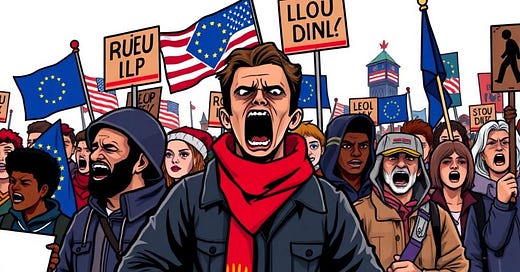The Cost of Seeing the World Wrong
#15 | On Why Racist Journalism and Dumb VC Money Have the Same Problem - Bad Pattern Recognition
If comment is free but facts are sacred, why do lazy narratives pass as analysis? Let’s talk about what happens when gatekeepers - of capital and narrative—get it wrong.
Francesco edited this edition of Unbeaten Path a few minutes before midnight with one comment… “really like it”.
In 1998, someone rapidly plumbed new depths, plummeting from friend to moron. When you’re 13 years old, you’re generous with your humour, your homework, and—unfortunately—your company.
One day after school, a couple of older boys attempted to intimidate us. There were more of them than us. I don’t remember the exact number, for reasons that’ll emerge. But they did intimidate. In such situations, my parents always recommended:
“Keep your mouth shut and walk away. If necessary, run.”
This moron did as a moron does. We could have walked away and felt embarrassed. Instead, he unapologetically lobbed a racial slur towards them. Naturally, these fellas weren’t chill. They pursued us. I don’t remember how many chased us because I took a wrong turn in the back alleys of a North London suburb, where they beat the shit out of me with a cricket bat.
The last thing I remember was the irony. The ex-friend/moron was Algerian and the attackers were Pakistani. As a teenager in a tolerant, modern Catholic family (now atheist), I didn’t think bigotry transcended religion. But it does. It always has.
Hate doesn’t care about neat categories. It moves fluidly, shifting between identities, religions, and nationalities. It’s not the exclusive domain of one group—it’s just waiting for the right conditions to surface.
The Lazy Thinking That Fuels Prejudice
And yet, some people still act like it is.
Like Matthew Karnitschnig, Editor-in-Chief of Euractiv, which is a highly-influential publication in the Brussels bubble and the European Union’s traveling circus, who wrote:
“There’s no question that much of this ignorance resides in Muslim migrant communities, where hatred of Jews is as much a staple of daily life as baklava.”

Those are the pathetic ramblings of someone who should know better. Karnitschnig was also Politico’s Chief Europe Correspondent and, somehow, a two-time Pulitzer finalist.
He probably thought he was being pithy. Instead, he just regurgitated the same tired nonsense that’s been used to paint entire groups as irredeemable for centuries. It’s the same logic that once framed Jews as global puppet-masters, Black men as innate criminals, and Irish people as inherently lazy.
Just pick a community, attach a vice, and boom—instant prejudice, gift-wrapped in confident prose.
Bad Pattern Recognition: The Real Problem
This is the problem with bad pattern recognition—people think they’re spotting a trend, but they’re really just recycling their own biases.
It happens in media. It happens in politics. And it definitely happens in venture capital.
Investors love to talk about pattern recognition—the ability to spot trends, back the right founders, and anticipate market shifts before everyone else. But what happens when the patterns they’re recognizing aren’t reality, but bias baked into the system?
Certain types of founders? Too risky.
Certain sectors? Not worth backing.
Certain demographics? Not leadership material.
Once a flawed narrative sets in, it self-replicates. Entire markets are mispriced, founders are overlooked, and opportunities are left untapped because people conflate prejudice with insight.
The Data Proves It
And it’s not just anecdotal. The numbers make it clear:
In 2023, over 80% of European Jews said antisemitism had worsened in their country over the past five years, with many feeling unsafe wearing visibly Jewish symbols in public. Following the October 7 Hamas attacks and the war in Gaza, anti-Muslim discrimination surged across EU countries, just as threats against Jews spiked.
But racial prejudice isn’t just a street-level problem—it’s institutional.
In 2024, racial minorities remained significantly underrepresented in EU media, with only a handful of top editors at 100 major UK news outlets being non-white. Black journalists report feeling “alienated” in newsrooms, and half of EU residents aged 16-29 say they’ve encountered hostile online messages targeting certain groups.
And the same patterns repeat in the business world.
In 2021, European startups with all-white founding teams raised $103.9 billion, while ethnic minority founders saw just $1.8 billion. Female-only teams? A pitiful 1.1%, according to Sifted.
Let’s be honest—many of those commitments were little more than marketing slogans to begin with. Because in a world obsessed with pattern recognition, bias has a funny way of masquerading as insight.
The Cost of Lazy Thinking
Across the Atlantic, the story is just as predictable.
In the U.S., Black entrepreneurs received raised just 0.48% of all venture dollars in 2023. Even in media, where narratives are supposedly shaped to reflect society, the representation gap is glaring: Around 70% of U.S. newsroom employees are non-Hispanic white, and only 12% of streaming TV series feature Black leads—down from 24% on traditional TV.
This isn’t just about optics.
Representation shapes public perception, which in turn shapes opportunity. More than 80% of African Americans believe Hollywood and the media stereotypes racial minorities. In the U.S., 54% of Black adults believe journalism needs better racial representation.
This Is a Market Inefficiency
So when media outlets publish sweeping, lazy generalizations like the one from Euractiv, they’re not just being careless with their words. They’re reinforcing a system where entire communities are pre-judged, underrepresented, and locked out of opportunities before they even begin.
Investors, hiring managers, policymakers, and the general public absorb these narratives, and whether consciously or not, they act on them.
And that’s the real problem.
It’s not just bad journalism—it’s bad pattern recognition.
The same people who wax poetic about “contrarian thinking” and “seeing what others miss” will turn around and parrot the same tired generalizations that got us here in the first place.
Stop Recycling Yesterday’s Prejudices. You want to find alpha? Stop recycling yesterday’s prejudices.
The next trillion-dollar market isn’t going to be built on lazy assumptions. It’s going to be built by people who see past them.
NB. I messaged Euractiv’s Chair of the Advisory Council. His reaction?
“Hi Chris,
Clearly a low moment. We're weighing the options.”




